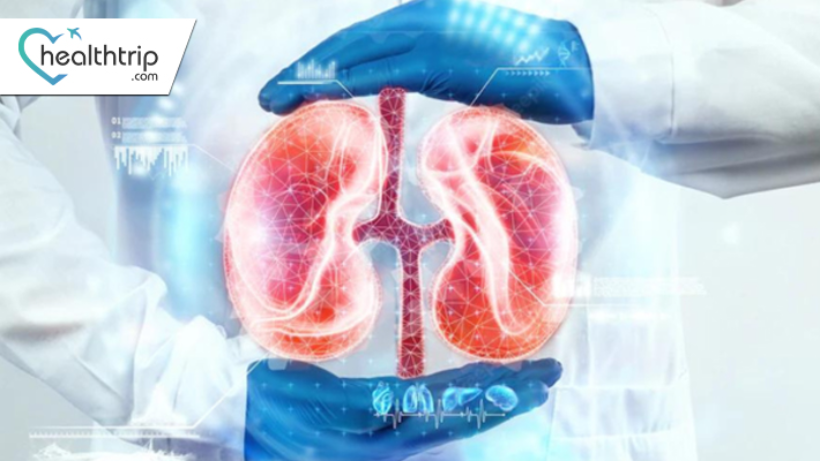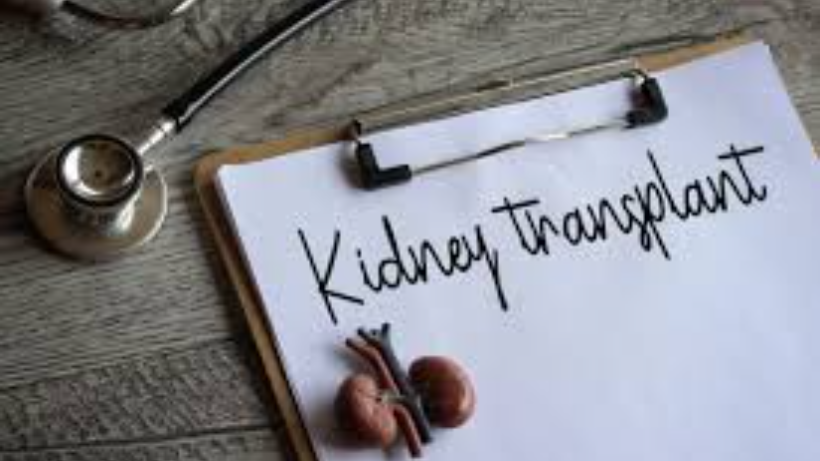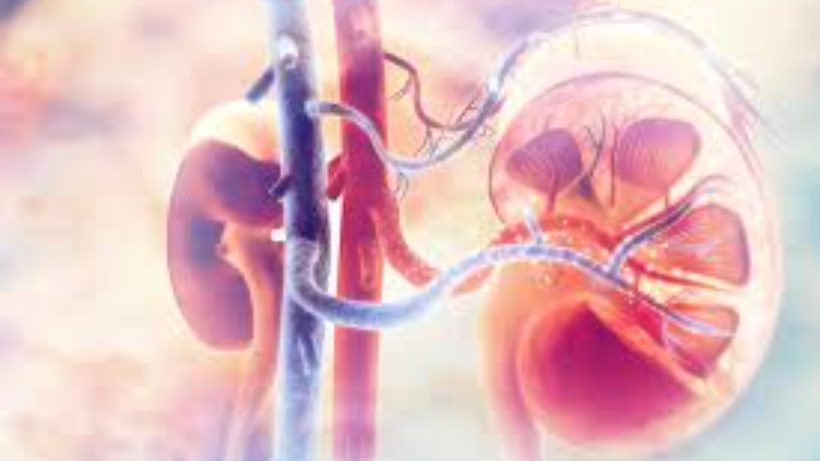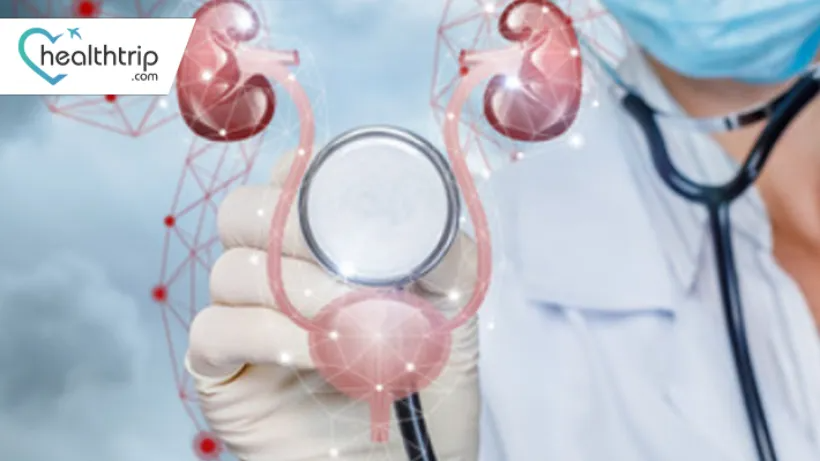Top Hospitals for Urology & Kidney Transplant View All 
Best Doctors for Urology & Kidney Transplant View All 
Treatment Starting at $6,500
Free Text ConsultTreatment Starting at $6,500
15 years SURGERIES :
NA TREATMENT COST
Starting at $6,500
Director & Hod- Urology & Renal Transplant
CONSULTS AT EXPEREIENCE :30+ years SURGERIES :
NA
Treatment Price on request
Free Text ConsultTreatment Price on request
30+ years SURGERIES :
NA TREATMENT COST
Treatment Price on request
Sr. Consultant & Director - Deptt. Of Urology And Renal Transplant
CONSULTS AT EXPEREIENCE :18 years SURGERIES :
NA
Treatment Price on request
Free Text ConsultTreatment Price on request
18 years SURGERIES :
NA TREATMENT COST
Treatment Price on request
Senior Consultant - Urology & Kidney Transplant
CONSULTS AT EXPEREIENCE :22 years SURGERIES :
10000+
Treatment Price on request
Free Text ConsultTreatment Price on request
22 years SURGERIES :
10000+ TREATMENT COST
Treatment Price on request
Urology Specialist
CONSULTS ATMemorial Atasehir Hospital, Turkey
EXPEREIENCE :13+ years SURGERIES :
NA
Treatment Price on request
Free Text ConsultTreatment Price on request
13+ years SURGERIES :
NA TREATMENT COST
Treatment Price on request
Senior Consultant-department Of Urology & Renal Transplant
CONSULTS AT EXPEREIENCE :18 years SURGERIES :
NA
Treatment Price on request
Free Text ConsultTreatment Price on request
18 years SURGERIES :
NA TREATMENT COST
Treatment Price on request
Testimonials
View All 
Related Blogs
View All 

hydronephrosis treatment costs in India
Hydronephrosis is a medical condition characterized by the swelling or enlargement of the kidneys due to the build-up of urine. This condition can be caused by various underlying factors such as kidney stones, urinary tract infections, tumors, or structural abnormalities that obstruct the flow of urine from the kidney to the bladder. Prompt diagnosis and appropriate treatment are crucial to manage hydronephrosis effectively and prevent potential complications.In India, a country with a burgeoning healthcare industry, the cost of treating hydronephrosis can vary depending on several factors, including the severity of the condition, the chosen treatment approach, the healthcare facility, and the geographical location. Let's delve into a detailed exploration of the treatment costs associated with hydronephrosis in India.Understanding the Treatment OptionsThe treatment of hydronephrosis in India typically involves addressing the underlying cause and relieving the obstruction in the urinary tract to restore normal kidney function. Treatment options may include:Medical Management:Initial treatments often involve medications to manage pain, infections, or underlying conditions like kidney stones.Costs associated with medication may vary based on the specific drugs prescribed and their duration of use.Surgical Intervention:In cases where the obstruction needs to be physically removed or corrected, surgical procedures may be necessary.Surgical approaches can include endoscopic procedures, pyeloplasty, nephrectomy, or ureteral stenting, among others.The cost of surgery can vary significantly based on the type of procedure, complexity, surgeon's expertise, and hospital charges.Lithotripsy:Extracorporeal shock wave lithotripsy (ESWL) is a non-invasive procedure often used to break down kidney stones.ESWL cost can depend on the number and size of the stones, as well as the specific healthcare facility.Stenting:Ureteral stents may be placed to keep the ureter open and facilitate the flow of urine from the kidney to the bladder.Stenting costs can vary based on the type of stent used, its duration of placement, and the healthcare provider.Factors Affecting Treatment CostsSeveral factors influence the overall cost of hydronephrosis treatment in India:Hospital and Facility Charges:The choice of healthcare facility, whether a public or private hospital, significantly affects the overall cost.Private hospitals tend to have higher treatment costs due to better amenities, services, and experienced medical staff. Geographical Location:Treatment costs can vary based on the city or region within India. Metropolitan areas generally have higher living and operational expenses, potentially leading to higher treatment costs. Specialist Consultation Fees:The fees of the treating urologist or nephrologist, who is specialized in treating hydronephrosis, are a significant component of the overall treatment cost. Diagnostic Tests:Costs associated with diagnostic tests like CT scans, MRI, ultrasounds, and laboratory tests are factors that add to the overall treatment expenses. Surgical Procedure Complexity:The complexity of the surgical procedure required to treat hydronephrosis directly impacts the overall treatment cost.Hydronephrosis treatment costs in IndiaHydronephrosis is a condition in which urine builds up in one or both kidneys. This can happen when the flow of urine is blocked or obstructed. The blockage can be caused by a number of things, including kidney stones, tumors, blood clots, and birth defects.The cost of hydronephrosis treatment in India can vary depending on a number of factors, including the severity of the condition, the type of treatment required, and the location of the treatment. However, in general, the cost of hydronephrosis treatment in India is relatively affordable.Here is a breakdown of the average cost of different types of hydronephrosis treatment in India:Stent placement: US$420 to US$940Shock wave lithotripsy: US$170 to US$620Ureteroscopy: US$740 to US$1,230Surgery: US$430 onwardsIt is important to note that these are just estimates, and the actual cost of treatment may vary depending on the individual patient's circumstances. It is also important to note that these costs do not include the cost of hospitalization, which can vary depending on the hospital and the patient's insurance coverage.Tips for Managing Hydronephrosis Treatment CostsResearch and Compare:Conduct thorough research on different healthcare facilities, their reputations, and the quality of services they provide. Compare prices and treatment packages to find the most cost-effective option. Consult Multiple Specialists:Seek consultations from multiple specialists to gather different opinions on the best treatment approach and associated costs. This can help you make an informed decision. Discuss Payment Options:Discuss payment plans, installment options, or potential discounts with the healthcare facility to ease the financial burden. Utilize Insurance Benefits:If you have health insurance, review your policy to understand the coverage for hydronephrosis treatment. Work closely with your insurance provider to maximize benefits and minimize out-of-pocket expenses. Consider Medical Tourism:If appropriate, explore the option of medical tourism to India. Research reputable hospitals, check patient reviews, and calculate potential savings to make an informed decision.Final ThoughtsHydronephrosis, if left untreated, can lead to severe complications. Seeking timely treatment is crucial, and understanding the associated costs is an essential step in the process. With the right knowledge, research, and planning, you can navigate the financial aspect of hydronephrosis treatment effectively, ensuring the best possible care for your health and well-being.

Kidney Failure Treatment Cost in India
IntroductionKidney failure, also known as end-stage renal disease (ESRD), is a serious medical condition that affects millions of people worldwide. It occurs when the kidneys lose their ability to filter waste products and excess fluids from the blood, leading to a buildup of toxins in the body. Kidney failure can be caused by various factors, including diabetes, hypertension, genetic predisposition, and certain infections.In India, where healthcare has made significant advancements in recent years, kidney failure treatment is not only accessible but also relatively affordable compared to many Western countries. This blog explores the cost of kidney failure treatment in India and the healthcare options available to patients.Cost of Kidney Failure TreatmentIf you have kidney failure, you will need to receive treatment to remove the waste products from your blood. There are two main types of treatment for kidney failure: dialysis and kidney transplantation.Dialysis is a procedure that filters the blood using a machine. There are two main types of dialysis: hemodialysis and peritoneal dialysis. Hemodialysis is performed in a hospital or dialysis center, while peritoneal dialysis can be done at home.Kidney transplantation is a surgery in which a healthy kidney is transplanted into the body. Kidney transplants can be done from living or deceased donors.The cost of kidney failure treatment in India varies depending on the type of treatment you receive, the hospital or clinic you go to, and your location.DialysisThe average cost of dialysis in India is around $36 to $360 per session in USD Hemodialysis is generally more expensive than peritoneal dialysis. The cost of dialysis can also vary depending on the type of dialysis machine and the other supplies that are needed.Kidney transplantationThe average cost of a kidney transplant in India is around 6013.30. USD. This includes the cost of the surgery, the donor's kidney, and the hospital stay. The cost of a kidney transplant can also vary depending on the hospital you go to, the surgeon's fees, and the type of transplant you receive.Post-transplant costsAfter a kidney transplant, you will need to take medication to suppress your immune system and prevent your body from rejecting the new kidney. This medication can be expensive, and the cost can vary depending on the type of medication and the dosage.Tips for Managing Kidney Failure Treatment Costs:Early Detection and Prevention: Regular health check-ups and monitoring of conditions like diabetes and hypertension can help in early detection and prevention of kidney disease. Early intervention can often be less expensive and more effective.Consultation and Second Opinions: Don't hesitate to seek second opinions from different healthcare providers. It can help you explore various treatment options and their associated costs.Medication Management: Discuss medication costs with your healthcare provider. They may be able to prescribe generic alternatives or suggest assistance programs offered by pharmaceutical companies to reduce the cost of essential medications.Dietary Management: Following a kidney-friendly diet can help slow the progression of kidney disease and reduce the need for expensive treatments. Consult a dietitian for guidance on a suitable diet plan.Support Groups and Charitable Organizations: Joining support groups for kidney disease patients can provide valuable information on cost-saving measures and financial assistance programs. Many charitable organizations also offer financial aid to individuals in need.Regular Follow-Up: Adhering to a regular follow-up schedule can help prevent complications and costly emergency situations. By monitoring your condition consistently, you can make necessary adjustments to your treatment plan in a timely manner.Financial Planning: Plan your finances carefully. Create a budget that accounts for your medical expenses, and explore options like health savings accounts (HSAs) or flexible spending accounts (FSAs) to set aside funds for healthcare costs.How can we help with the treatment?If you're on the lookout for treatment in India, Thailand, Singapore, Malaysia, UAE, and Turkey, let Healthtrip be your compass. We will serve as your guide throughout your medical treatment. We'll be by your side, in person, even before your medical journey commences. The following will be provided to you:Connect with renowned doctors from a network spanning 35+ countries and access the world's largest health travel platform.Collaboration with 335+ top hospitals , including Fortis and Medanta.Comprehensive treatments from Neuro to Cardiac to Transplants, Aesthetics, and Wellness.Post-treatment care and assistance.Teleconsultations at $1/minute with leading surgeons.Trusted by 44,000+ patients for appointments, travel, visa, and forex assistance.Access top treatments and packages, such as Angiograms and many more.Gain insights from genuine patient experiences and testimonials.Stay updated with our medical blog.Our success storyIn conclusion,while kidney failure is a serious health condition, the cost of treatment in India is relatively manageable with careful planning and access to various healthcare options. Early detection, insurance coverage, and financial planning are key factors in ensuring that the financial burden of kidney failure treatment does not become overwhelming. Remember that timely intervention and a proactive approach to healthcare can lead to better outcomes and reduced treatment costs in the long run.

Top Urologists for Paraphimosis Treatment
Paraphimosis is a medical condition that requires prompt attention from urologists, and finding the right expert is crucial for effective treatment. In India, renowned urologists are well-equipped to handle cases of paraphimosis with their extensive experience and specialized skills. In this guide, we will introduce you to some of the top urologists in India who excel in paraphimosis treatment. Their expertise, dedication, and contributions to the field of urology make them the go-to professionals for addressing this condition. Dr Amitava MukherjeeSenior Consultant - Urology/andrologyConsults at : Fortis Hospital Anandapur KolkataDr. Amitava Mukherjee has over 21 years of experience in the field of Urology.He has expertise in the treatment of Lithotripsy, Urinary Tract Obstruction, Uro Oncology, Prostate Laser Surgery, Stone laser surgery, Urinary Tract Infection (UTI), and Urinary Incontinence (Ui) Treatment.Dr. Amitava has pioneered the use of holding lasers for prostate surgery in Eastern India.TreatmentsEndourology, Paraphimosis TreatmentLaparoscopic and Robotic Urology, Nephrectomy, Acute Kidney Injury, Chronic Kidney Disease & Failure,Urological Cancer, and Urological Reconstructive Surgery.Direct Visual Internal Urethrotomy (DVIULithotripsyProstatitis Dr. Y. P. S. RanaSr. Consultant - Urology, Andrology & Renal TransplantationConsults at : BLK-Max Super Speciality Hospital, New DelhiDr. Yajvender Pratap Singh Rana / YPS Rana is a leading name in the field of Urology & Renal transplantation and Uro-oncology.He has done more than thousands Uro-oncology cases, including Robotic radical prostatectomy, Robotic radical cystectomy with ileal conduit or neobladder formation, Robotic partial, Radical Nephrectomy.Experience Abroad: - Observer ship at Johns Hopkins Brady Urological Institute - Baltimore, USA.Speciality Interest & Expertise:Kidney TransplantationRobotic UrologyPediatric UrologyUrogynecologyLaparoscopic UrologyMinimal Invasive Urology for Stone DiseasesAndrology and Reconstructive UrologyMale Infertility & Sexual DysfunctionRobotic Uro-oncology Dr. Sandeep PrasadConsultant - Urology/andrologyConsults at : Fortis Hospital Anandapur KolkataDr. Sandeep Prasad is an experienced Urologist practicing in Kolkata, India.He practices at Fortis Hospital and Kidney Institute in Anandapur, Kolkata, and is also available at Barrackpore Trunk Road, Kolkata.Dr. Prasad has an experience of 12 years in the fields of Gastrointestinal Surgery, General Surgery, and Urology.Treatments:LithotripsyEndourologyRenalUreteral stonesTURPHoLEPRenal, bladder and prostate oncologyOpen ProstatectomyTransurethral Incision of Prostate (TUIP)Urinary Incontinence (UI) TreatmentTransurethral Resection of Prostate (TURR)CystoscopyDr. Pramod. S.Consultant - UrologistConsults at : Kauvery Hospital, ChennaiDr. Pramod S. is a well-tainted urologist based in Bengaluru, with over 7 years of experience.He is an expert in urinary stone disease, laser prostatectomy, andrology, and male sexual dysfunction.Dr. Pramod S. has published several scientific articles in national and international medical journals.Educational Qualifications: MBBS, MMC, Mysore; MS (General Surgery), MMC, Mysore; MCh (Urology), BMC, Bengaluru.Experience: Assistant Professor - Urology at Father Muller, Mangalore and St. John’s Medical College, Bengaluru; Consultant - Urologist at Kamineni Hospital, Hyderabad, and Narayana Hrudayalaya, Ahmedabad.How can we help with the treatment?If you're on the lookout for treatment in India, Thailand, Singapore, Malaysia, UAE, and Turkey, let Healthtrip be your compass. We will serve as your guide throughout your medical treatment. We'll be by your side, in person, even before your medical journey commences. The following will be provided to you: Global Network: Connect with 35+ countries' top doctors. Partnered with 335+ leading hospitals.Comprehensive Care: Treatments from Neuro to Wellness. Post-treatment assistance and TeleconsultationsPatient Trust: Trusted by 44,000+ patients for all support.Tailored packages: Access top treatments like Angiograms.Real Experiences: Gain insights from genuine patient testimonials.24/7 Support: Continuous assistance and emergency help.

Post-Kidney Transplant Care for Optimal Recovery
For countless individuals battling chronic kidney disease, a kidney transplant isn't just a medical procedure—it's a beacon of hope. However, the path to complete recovery extends beyond the operating room. A meticulous post-operative care regimen is indispensable to ensure the new kidney's longevity and optimal functionality. Let's delve deeper into the essential aspects of post-kidney transplant care.1. Adherence to Medication: The Cornerstone of RecoveryImmunosuppressants: Think of these not as mere medications but as guardians of your new kidney. They play a pivotal role in preventing your body from rejecting the newly transplanted organ. Their efficacy, however, hinges on strict adherence. Missing a dose or not following the prescribed schedule can have dire consequences, potentially leading to organ rejection or decreased kidney function.Complementary Medications: Beyond immunosuppressants, your doctor will likely prescribe other medications tailored to your needs. These can range from blood pressure regulators to cholesterol-controlling drugs. Each medication serves a distinct purpose, working in tandem to ensure your body remains in equilibrium. It's essential to understand the role of each drug, its side effects, and the importance of timely intake.2. Recognizing Organ Rejection: Knowledge is PowerOrgan rejection is a genuine concern post-transplant. The body, in its attempt to ward off foreign entities, might perceive the new kidney as a threat. Recognizing the early signs of rejection can be life-saving:Fever and Flu-like Symptoms: A sudden spike in temperature or feeling unwell can be indicative of your body's adverse reaction to the new kidney.Pain or Swelling: Any discomfort or swelling in the area where the kidney was transplanted should be taken seriously.Weight and Urine Changes: A sudden increase in weight or reduced urine output can be red flags signaling potential complications.Immediate medical intervention upon noticing these symptoms can prevent severe complications and even save the transplanted kidney.3. Regular Health Check-ups: Prevention Over CureThe aftermath of a kidney transplant requires rigorous monitoring:Frequent Consultations: Especially during the initial months, regular visits to your transplant team are non-negotiable. These check-ups allow for monitoring of kidney function, adjustment of medications, and early detection of potential complications.Blood Tests: These will become a routine part of your life. Blood tests provide insights into how well your new kidney is functioning and whether there are signs of rejection.4. Hygiene and Cleanliness: Your First Line of DefensePost-transplant, your immune system operates at a diminished capacity, making you more susceptible to infections:Hand Hygiene: Regular and thorough handwashing using soap and water or an alcohol-based hand sanitizer can significantly reduce the risk of infections.Environmental Awareness: It's prudent to avoid places with large crowds or individuals who are sick, especially during flu season or outbreaks.Food Safety: Ensure that your food is well-cooked and properly stored. Raw or undercooked foods can harbor harmful bacteria, posing a risk to your weakened immune system.5. Dietary Choices: Nourishing the New KidneyYour diet plays a crucial role in post-transplant recovery:Salt Intake: Excessive salt can exacerbate hypertension, a condition detrimental to kidney health. Opt for fresh foods over processed ones and be wary of hidden salts in snacks and restaurant meals.Protein Consumption: While proteins are essential for healing and muscle building, excessive intake can strain the kidneys. Collaborate with a dietician to strike the right balance.Hydration: Drinking ample water aids in flushing out toxins. However, depending on your kidney function and output, your doctor might recommend monitoring fluid intake.6. Physical Activity: Strengthening the BodyIn the aftermath of a kidney transplant, reintroducing physical activity is paramount not only for physical well-being but also for mental rejuvenation.Low-Impact Exercises: Initiating your journey with gentle exercises like walking can be immensely beneficial. These activities promote blood circulation, enhance muscle tone, and boost mood without exerting undue stress on the body.Professional Guidance: Before intensifying your exercise regimen or introducing new activities, it's essential to consult with a physiotherapist or fitness professional familiar with post-transplant care. They can tailor a program that aligns with your recovery stage and overall health.Caution with Lifting: The surgical site needs time to heal. Engaging in heavy lifting or strenuous activities during the initial recovery phase can risk complications or injuries. Always adhere to the guidelines provided by your healthcare team.7. Sun Protection: Shielding Sensitive SkinCertain immunosuppressants can heighten sun sensitivity, making diligent sun protection indispensable.Sunscreens: Opt for broad-spectrum sunscreens with a high SPF. These offer protection against both UVA and UVB rays. Reapply every two hours and after swimming or sweating.Dress Smart: Wide-brimmed hats, sunglasses with UV protection, and long-sleeved clothing can provide an added layer of defense against harmful sun rays.Timing Matters: The sun's rays are most potent between 10 a.m. and 4 p.m. Whenever possible, schedule outdoor activities outside these hours or seek shade.8. Continuous Learning: Staying Ahead in the Health GameYour transplant is just the beginning of a lifelong learning journey.Education Workshops: Many hospitals and organizations offer workshops tailored for transplant recipients. These sessions provide insights into post-transplant care, recent medical advancements, and more.Evolving Research: The medical field is ever-evolving. Stay updated with the latest research, breakthroughs, and recommendations related to kidney health and transplant care.Ask Questions: Your transplant team is a reservoir of knowledge. Foster a curious mindset and don't hesitate to seek clarifications or delve deeper into topics of interest.9. Mental Health: Healing Beyond the PhysicalThe emotional aftermath of a transplant can be as challenging as the physical recovery.Therapy and Counseling: Professional therapists can offer coping strategies, provide a safe space to process emotions, and guide you through the emotional ebbs and flows post-transplant.Support Groups: Connecting with fellow transplant recipients can be therapeutic. Sharing experiences, challenges, and triumphs fosters a sense of belonging and understanding.Mindfulness and Meditation: Techniques like deep breathing, meditation, and guided imagery can be instrumental in managing anxiety, stress, and emotional turbulence.10. Abstaining from Detrimental Habits: Safeguarding the GiftCertain habits can jeopardize the health of your new kidney and overall well-being.No Smoking: Tobacco products can exacerbate kidney damage, impair blood flow, and increase the risk of cancers. Commit to quitting.Alcohol in Moderation: If consumed, alcohol should be in moderation. Excessive alcohol can strain the kidneys and interact adversely with medications.Medication Awareness: Over-the-counter drugs, especially NSAIDs like ibuprofen, can be harmful to kidney health. Always consult your transplant team before taking any new medication.11. Vaccination Updates: Fortifying ImmunityWith a suppressed immune system post-transplant, vaccinations play a pivotal role in warding off potential infections.Stay Updated: Regularly consult with your healthcare provider about necessary vaccines. From flu shots to pneumonia vaccines, ensure you're shielded from preventable diseases.How can we help with the treatment?If you're on the lookout for treatment in India, Thailand, Singapore, Malaysia, UAE, and Turkey, let Healthtrip be your compass. We will serve as your guide throughout your medical treatment. We'll be by your side, in person, even before your medical journey commences. The following will be provided to you:Connect with renowned doctors from a network spanning 35+ countries and access the world's largest health travel platform.Collaboration with 335+ top hospitals , including Fortis and Medanta.Comprehensive treatments from Neuro to Cardiac to Transplants, Aesthetics, and Wellness.Post-treatment care and assistance.Teleconsultations at $1/minute with leading surgeons.Trusted by 44,000+ patients for appointments, travel, visa, and forex assistance.Access top treatments and packages, such as Angiograms and many more.Gain insights from genuine patient experiences and testimonials.Stay updated with our medical blog.Our success stories12. Open Communication: The Bedrock of TrustYour relationship with your healthcare team is a partnership built on trust and open communication.Voice Concerns: No concern is too trivial. Whether it's a slight change in symptoms, a new side effect, or an emotional challenge, communicate openly with your transplant team.Proactive Conversations: Early discussions about potential issues can lead to timely interventions, preventing minor concerns from escalating into major complications.A kidney transplant is a second chance at a healthier life. With the right care, you can ensure that your new kidney serves you well for years to come. Remember, every individual's journey is unique. Always consult with your healthcare provider about the best post-transplant care tailored to your needs.

Dos and Don'ts After a Kidney Transplant
Undergoing a kidney transplant is a life-changing event that can offer a new lease on life for individuals with kidney disease. However, it's essential to understand that the journey doesn't end with the surgery. In fact, the post-transplant period is just as critical as the surgery itself, as it plays a crucial role in ensuring the long-term success of the transplant. To help you navigate this challenging but hopeful time, we've put together this comprehensive guide on the dos and don'ts after a kidney transplant. By following these guidelines and making some necessary lifestyle adjustments, you can increase the chances of a successful transplant and enjoy a healthier, more fulfilling life.Dos After Kidney Transplant 1. Follow Your Medication Schedule: One of the most critical aspects of post-transplant care is adherence to your medication regimen. Immunosuppressant drugs are prescribed to prevent your body from rejecting the new kidney. Take them exactly as prescribed by your transplant team, and never skip a dose.2. Regular Medical Checkups: Attend all your scheduled follow-up appointments with your transplant team. These appointments help monitor your kidney function and overall health, allowing any potential issues to be detected and addressed early.3. Maintain a Healthy Diet: Eating a balanced diet is essential for overall health and maintaining your kidney's well-being. Consult with a registered dietitian who can create a meal plan tailored to your specific needs. In general, focus on fresh fruits, vegetables, lean protein, and limited sodium and processed foods.4. Stay Hydrated: Adequate hydration is vital for kidney function. Aim to drink plenty of water throughout the day. Your healthcare team can provide guidance on your individual fluid needs.5. Regular Exercise: Incorporate regular physical activity into your daily routine. Exercise helps maintain a healthy weight, improve cardiovascular health, and boost your overall well-being. Consult your healthcare team for personalized exercise recommendations.6. Infection Prevention: Protect yourself from infections by practicing good hygiene, including regular handwashing and avoiding close contact with sick individuals. Follow your healthcare team's guidance on vaccinations, and stay up to date on recommended immunizations.7. Manage Stress: Stress can negatively impact your health and immune system. Engage in relaxation techniques like meditation, deep breathing, or yoga to reduce stress levels.8. Listen to Your Body: Pay attention to any signs or symptoms that may indicate a problem with your transplant, such as fever, swelling, pain, or changes in urine output. Promptly report any concerns to your transplant team.Don'ts After Kidney Transplant 1. Avoid Non-Prescription Medications: Over-the-counter medications, herbal supplements, and even some prescription drugs can interact with your immunosuppressant medications. Always check with your transplant team before taking any new medications or supplements.2. Limit Salt and Processed Foods: High sodium intake can lead to high blood pressure and fluid retention, which can strain your new kidney. Avoid salty snacks, canned soups, and processed foods, and use herbs and spices for flavor instead of salt.3. Refrain from Smoking and Alcohol: Smoking and excessive alcohol consumption can harm your overall health and jeopardize the success of your transplant. Seek support and resources to quit smoking if needed, and consume alcohol in moderation, if at all.4. Avoid Excessive Sun Exposure: Immunosuppressant medications can make your skin more susceptible to sunburn and skin cancer. Use sunscreen with a high SPF, wear protective clothing, and limit your time in the sun, especially during peak hours.5. Don't Skip Medications or Adjust Dosages: Never skip a dose or make changes to your medication regimen without consulting your transplant team. This can lead to rejection or other complications.6. Limit High-Potassium Foods: While potassium is essential for your body, too much can be harmful to your kidneys. Avoid or limit foods high in potassium, such as bananas, oranges, and potatoes. Your dietitian can provide specific guidance based on your needs.7. Avoid High-Risk Activities: Steer clear of high-impact sports or activities that could lead to physical injury. Protect your transplant and yourself by choosing safer forms of exercise.8. Don't Ignore Mental Health: The emotional and psychological aspects of a kidney transplant can be challenging. Don't hesitate to seek support from mental health professionals, support groups, or trusted friends and family members if you're struggling emotionally.How can we help with the treatment?If you're on the lookout for treatment in India, Thailand, Singapore, Malaysia, UAE, and Turkey, let Healthtrip be your compass. We will serve as your guide throughout your medical treatment. We'll be by your side, in person, even before your medical journey commences. The following will be provided to you:Connect with renowned doctors from a network spanning 35+ countries and access the world's largest health travel platform.Collaboration with 335+ top hospitals , including Fortis and Medanta.Comprehensive treatments from Neuro to Cardiac to Transplants, Aesthetics, and Wellness.Post-treatment care and assistance.Teleconsultations at $1/minute with leading surgeons.Access top treatments and packages, such as Angiograms and many more.Gain insights from genuine patient experiences and testimonials.Stay updated with our medical blog.Our success storiesA successful kidney transplant can be a life-changing event, but it comes with a lifelong commitment to your health and well-being. By following the dos and don'ts outlined in this comprehensive guide, you can enhance your chances of a successful transplant and a healthier future. Remember that every transplant recipient is unique, so it's essential to work closely with your transplant team to tailor these guidelines to your specific needs. With dedication, a healthy lifestyle, and ongoing medical support, you can look forward to a brighter, healthier future post-transplant. Your new kidney is a gift, and taking care of it is a gift to yourself.

Top Urologists for Urethral Stricture Surgery in India
Urethral stricture, a narrowing of the urethra, can be a painful and distressing condition that affects men of all ages. Fortunately, India is renowned for its skilled urologists who specialize in performing urethral stricture surgeries with precision and care. In this blog, we'll introduce you to some of the top urologists in India known for their expertise in treating urethral strictures. Whether you're a local resident or a medical tourist seeking top-notch care, these specialists have earned their reputation as leaders in the field.Urethral stricture surgeryUrethral stricture surgery is a medical procedure designed to address the narrowing of the urethra—a tube that carries urine from the bladder out of the body. This condition, known as urethral stricture, can result from inflammation, infection, or injury, leading to difficulties in urination. Surgical interventions aim to widen or repair the narrowed section of the urethra. Common techniques include urethral dilation, direct visual internal urethrotomy (DVIU), and urethroplasty. The choice of surgery depends on the severity and location of the stricture. Successful procedures can alleviate urinary difficulties and improve overall quality of life.1. Dr. Ashutosh BaghelIndiaConsultant - Nephrologist / UrologistConsults at : Wockhardt Hospitals, Mira Road, MumbaiDr. Ashutosh Baghel is a Urologist at Wockhardt Hospital, Mira Road, Mumbai, with 16 years of experience in Urology.He practices not only at Wockhardt Hospitals in Mira Road but also at Wockhardt Borivali Clinic in Borivali West, Mumbai, and Wockhardt Vasai Clinic in Vasai West, Mumbai.Dr. Baghel obtained his MBBS degree from Maharshtra University of Health Sciences in 2004, followed by an MS in General Surgery from the same institution in 2010.He further specialized by completing DNB in Urology/Genito-Urinary Surgery from the National Board Of Examination in 2016.His expertise covers various areas, including Onco-Urology, Stone Diseases (Kidney, Ureter, Bladder), Laser Surgery, Infertility, Arterio Venous Fistula (AVF), Renal Transplant, and Laparoscopic & Robotic Urology. 2. Dr. Pramod. S.IndiaConsultant - UrologistConsults at : Kauvery Hospital, ChennaiDr. Pramod S. is a well-tainted urologist based in Bengaluru, with over 7 years of experience.He is an expert in urinary stone disease, laser prostatectomy, andrology, and male sexual dysfunction.Dr. Pramod S. has published several scientific articles in national and international medical journals.Educational Qualifications: MBBS, MMC, Mysore; MS (General Surgery), MMC, Mysore; MCh (Urology), BMC, Bengaluru.Experience: Assistant Professor - Urology at Father Muller, Mangalore and St. John’s Medical College, Bengaluru; Consultant - Urologist at Kamineni Hospital, Hyderabad, and Narayana Hrudayalaya, Ahmedabad.Expertise: Radical Prostatectomy, Laparoscopic Pyeloplasty, Ureteroscopy, Urethroplasty, Renal Transplantation, Laparoscopic Donor Nephrectomy, Uro-Oncology, TRUP, PCNL, RIRS, PCNL.3. Dr. Dinesh SumanIndiaConsultant - UrologistConsults at : Indian Spinal Injuries Center, New DelhiDr. Dinesh Suman is a urologist with over 16 years of experience in diagnosing and treating a wide range of urological conditions. His clinical focus includes the treatment of conditions such as erectile dysfunction, bladder cancer, genitourinary tract infections, priapism, Peyronie's disease, urethral injuries, and infertility in men.Dr. Dinesh Suman has expertise in the diagnosis and treatment of both surgical and non-surgical urological conditions. He is experienced in performing a variety of surgical procedures, including minimally invasive surgeries, and has a strong background in treating conditions that affect the urinary tract, kidneys, bladder, and reproductive system.Dr. Suman is a life member of the Urological Society of India (USI), the Spinal Cord Society, and the International Continence Society. He has also presented papers and posters at various national and international conferences and has published numerous articles in peer-reviewed medical journals.Area of interestDysfunction, bladder cancer,Genitourinary tract infections,4. Dr. Rajesh TanejaIndiaUrologistConsults at : Indraprastha Apollo HospitalDr. Rajesh Taneja is a urologist at the Indraprastha Apollo Hospitals, New Delhi. He is an experienced urologist who tried his hands at the Holmium Laser Enucleation of Prostate (HoLEP) technique. Apart from that, he has experience in performiing various other surgeries like Laparoscopic surgery, Minimally invasive and major stone surgery, GU prosthetics, Cryosurgical ablation of prostate and renal lesions, Robotically-assisted laparoscopic radical prostatectomy, etc.Areas Of Interests:Holmium Laser Enucleation of Prostate ( HoLEP)Urologic oncologyFemale and pediatric urologyGU prostheticsLaparoscopic surgeryRobotically-assisted laparoscopic radical prostatectomyCryosurgical ablation of prostate and renal lesionsMinimally invasive and major stone surgeryGU prostheticsUrethral Stricture SurgeryLaparoscopic surgeryConclusion Urethral Stricture Surgery is a specialized procedure designed to alleviate the restrictive effects of urethral strictures, restoring proper urinary function. Whether employing dilations, urethrotomy, or reconstructive techniques like urethroplasty, the goal is to widen or repair the narrowed urethra. This surgery significantly improves the quality of life for individuals facing challenges with urination due to strictures. While advancements in surgical techniques enhance success rates, postoperative care and regular follow-ups are crucial. Collaboration between patients and healthcare providers ensures optimal outcomes, emphasizing the importance of personalized treatment plans in addressing urethral strictures effectively.






